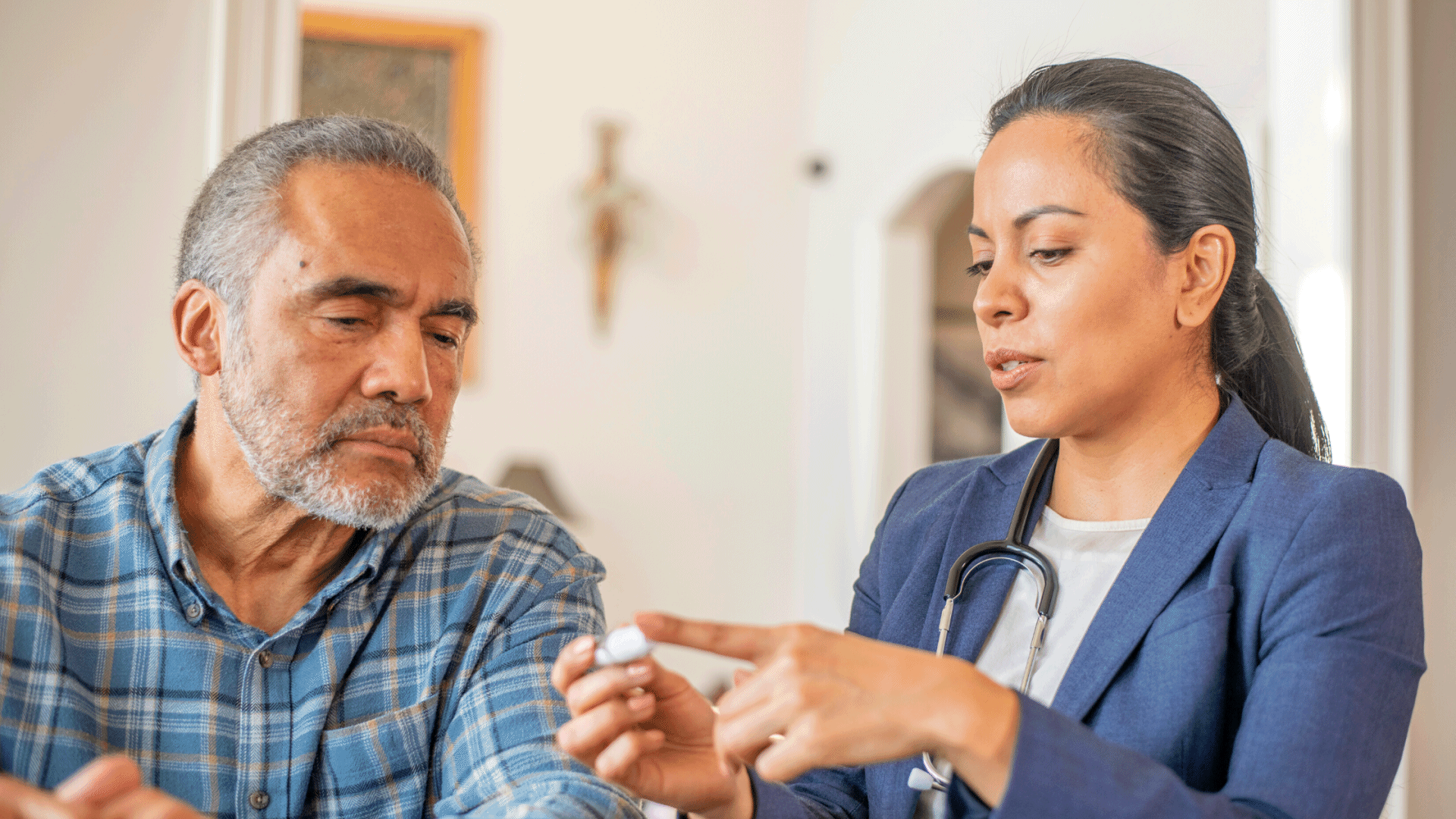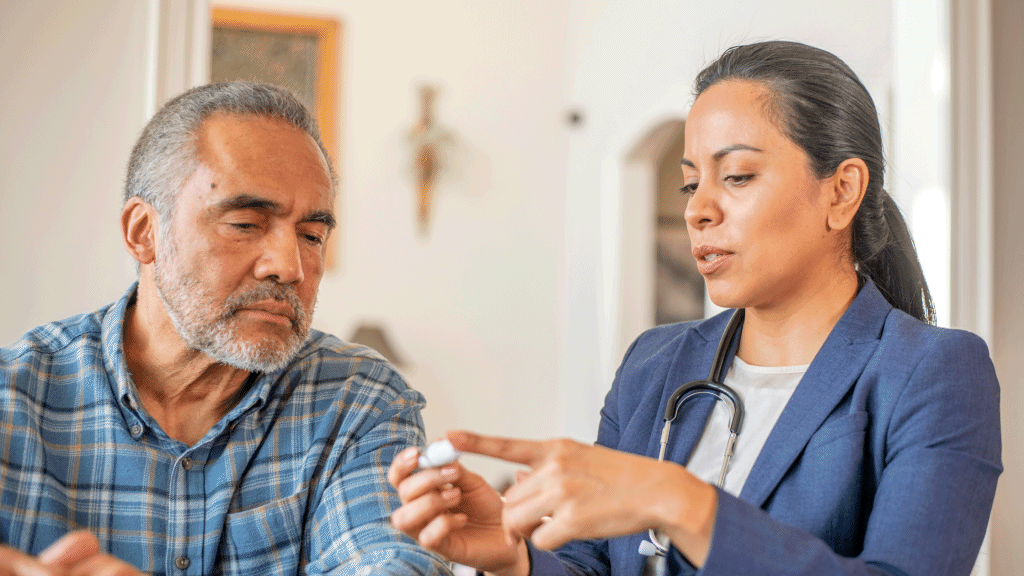According to the CDC’s National Diabetes Statistics Report, an estimated 1.4 million people aged 18 and older were diagnosed with type 2 diabetes in 2019.
It is important to promote awareness about this disease and make it clear that, although there are some non-modifiable factors such as age, ethnicity, and genetics, diabetes can be a preventable disease. Those non-modifiable factors will increase our risk, but the modifiable ones are what will ultimately determine whether we will develop type 2 diabetes or not.
How can we prevent the onset of diabetes?
Diet
Contrary to popular belief, it’s not about never eating chocolate again or canceling out carbs altogether. It is about trying to maintain a healthier diet without exceeding the recommended portions of foods high in carbohydrates and sugars. The five food groups are fruit, vegetables, grains, dairy, and protein. However, many of us leave out vegetables “because they lack flavor” or “because we don’t crave them” and fill the plate with foods high in carbohydrates such as rice, tortillas, bread, etc. without considering the effects of excessive consumption.
It is important that when it comes to eating, we begin to consider not only the temporary satisfaction we get as these foods hit our taste buds, but the long-term effects once they are in our system.
Physical activity
Exercise has multiple benefits. Being physically active helps us holistically – body and mind. It helps us improve our physical condition by working the heart, lungs, muscles, and our entire body, helping us prevent obesity which is the first risk factor for several chronic diseases, including diabetes. Mentally, it helps us feel more motivated, influences the increase of self-esteem and improves our cognitive functioning.
Other factors –
- Prediabetes – Prediabetes is the advanced notice of the disease. This is when our blood sugar levels begin to be higher than normal, but lifestyle modifications can still be made to return to normal range. However, if those habits continue – poor food choices, sedentary lifestyle, and high levels of stress – it is very likely that diabetes will be the next diagnosis.
- Gestational Diabetes – 50% of women with gestational diabetes develop type 2 diabetes post-partum.
- Smoking – 12% of diabetes cases are attributed to extensive tobacco use. Quitting smoking should be a key element of diabetes prevention and treatment.
- Polycystic ovary Syndrome – According to the CDC, “more than half of women with polycystic ovary syndrome develop type 2 diabetes by the time they are 40 years old.” Women with this syndrome are often diagnosed with diabetes because their body becomes insulin resistant.
- Obesity – Obesity as mentioned above is the first risk factor that can lead to the diagnosis of multiple diseases.
Having a better understanding of these factors will help us have an idea of how high our risk of being diagnosed with diabetes is. Below, we share a table created by the University of Illinois at Chicago with which you can make a self-assessment to know your risk.

I’ve been diagnosed with diabetes – now what?
There is often a stigma that individuals with diabetes will suffer complications – loss of a limb, retinopathy, neuropathies, etc., or in the worst case lose their life against the disease, which is not always true. If you have been diagnosed, you should know that, although perhaps the stories of people you have met with this disease have ended badly, you can gain full control of this disease preventing serious complications.
It’s all about following the treatment step by step and learning to get to know your body.
How can I better control my diabetes?
Enroll in the Diabetes Education Empowerment Program
If you are interested in learning more about how to prevent or control this disease, contact us! Advance is licensed by the University of Illinois at Chicago to facilitate the Diabetes Education and Empowerment program where you can learn more about everything you need to prevent or manage this disease. For more information email us at [email protected] or call us at 602.675.3470.

Know your blood sugar levels
There are certain ideal levels that you could maintain to help your body continue to function properly, preventing complications. Checking your glucose both after fasting and two hours after eating will be key to knowing how your body is processing glucose – the ideal numbers are fasting 80-130mg/dL and after eating, less than 180mg/dL. If you want to know how you have managed your levels on average in the last 3 months, your doctor may order a glycosylated hemoglobin test also known as A1C test. The ideal result would be 7% or less, the higher your % of A1C, the greater the risk of complications. See the table below for the other ideal levels.

Get used to self-monitoring
Self-monitoring is key to knowing how our body is functioning. According to a study on the website of the National Library of Medicine (NIH) indicates that 73.6% of people with diabetes also have hypertension. High glucose levels increase the workload of the heart, and this overexertion is what ends up giving the diagnosis of this second chronic disease known as hypertension (high blood pressure). It is important to create a habit of checking glucose and blood pressure levels.
Visit your doctor
The medical team is the one who will help you take care of your health. Any questions you have about symptoms, medication, or treatment should be asked by your doctor. In the case of suffering from a complication you should visit the specialist in that area.
- Retinopathies, Cataracts or Glaucoma → Ophthalmologist or Optometrist
- Kidney infections/kidney failure → Nephrologist
- Infections or loss of sensation in the extremities (feet or hands) → Podiatrist or Neurologist.
- If you have questions about who to check with, consult your primary care physician.
Take your medication
It is important to always follow the treatment your doctor prescribes. Stopping medicines suddenly could have repercussions on your health. If any medication bothers you, check with your doctor, they will give you alternatives to others, or change the dose, but it is important that you consult it instead of discontinuing it completely
When you are prescribed a new medication, ask the necessary questions to know what you are taking:
- What is the function of the medicine?
- How long does it take to take effect?
- What are its side effects?
- When should I stop taking it?
- What happens if I stop taking it?
- What time should I administer it?
- With food or fasting?
Etc. All these questions will help you to better carry out your treatment.
Watch your diet and exercise regularly
Food is what will help us reduce the workload on our body. If we consume foods high in carbohydrates or sugars, we will be causing high blood glucose spikes, affecting our levels.
Regular exercise will help your muscles absorb the high amounts of glucose in your blood to use as energy. It is a natural medicine that will help you keep your levels under control.
Take care of your mental health
Stress causes our liver to release its glucose reserve into the bloodstream. That is why, sometimes, even if we are following the medication to the letter – food, exercise, medication and everything – our body reflects high levels if we are going through some difficult situation that generates stress or worry.
Don’t be afraid to ask for help
It’s important to know that we’re not alone. Seeking help and asking for information about this disease can make the process easier. It is normal that sometimes you feel frustrated or sad about all the changes that this disease represents but know that it is possible to lead a quality life if the necessary steps are followed.
Still have questions? Contact Advance’s team of Community Health Educators to learn more about diabetes and its risk factors.

